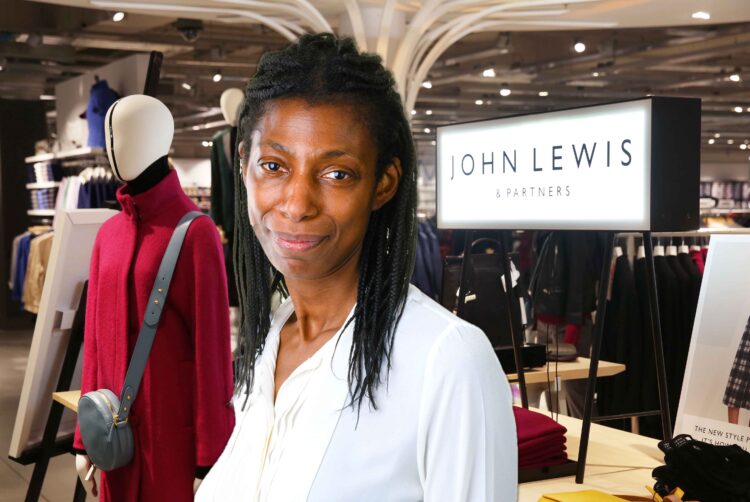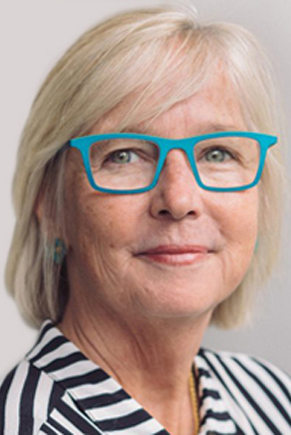Why we need to listen to and learn from John Lewis’s grande Dame Sharon White

Opinion
Whether it’s ‘getting more local in approach’, or solving the enormous inflation challenge facing us all this year, John Lewis chair Sharon White’s stated priorities should be taken on board closely by our industry.
Watching Dame Sharon White being interviewed by Amol Rajan on the BBC was utterly refreshing on so many levels.
For those who may have been surprised by her appointment as the Chair of the John Lewis Partnership two years ago, it gave some insight into why she must have stood out as a candidate during the interview process.
A business leader who could speak effortlessly about social mobility, leadership, the economy, tax reform, industrial democracy, advertising and perhaps most beguilingly of all from a person with no background in the sector, the changing face of retail.
Partners first, shopkeepers second
Here we have a business leader who took the helm just weeks before the pandemic hit. She has had to lead an organisation where the consent of the partners was required before implementing painful job cuts and store closures.
The high street and traditional retailing has been distressed for some years, and now the company must adjust to the realities of a post pandemic, post Brexit world.
The staff, or partners as they are called, own the John Lewis Partnership so White is answerable to them alone. Unlike the shareholders of their competitors, who simply look for a dividend, their newly-agreed purpose describes “working in partnership for a happier world”.
Following considerable thought and consultation, the partnership is now described as, “an ongoing experiment to find happier, more trusted ways of doing business, for the benefit of us all”. By which they mean: “working together to create a successful business and a fairer, more sustainable future for partners, customers, suppliers, and communities.”
Their financial reward comes via an annual bonus, which was paid this year at a higher rate than many people were expecting.
Renewed interest in what is on our doorstep
White spoke of “trying to get more local” in approach and it will be fascinating to see what this means in reality.
We have been led to believe that the high street was dying. Killed off by the devastating combination of online retailers offering low prices and convenience, huge out of town shopping centres with generous car parking facilities and the decline of the pull of traditional local amenities such as the local bank branch and post office.
But now with hybrid working here to stay, many of our high streets are set to change radically once again. At least those that are within easy walking distance from where we work.
Within reach of the home office
I am already noticing changes in Balham as the big chains adjust and follow their weekday customers from the office to their homes.
What was a branch of Santander is now a sparkly new Pret a Manger, and I read in the Evening Standard that Soho House is opening its first site in South London in Balham, with a branch of the Mayfair Italian restaurant Cecconi housed within it. Both, as it happens, a stone throw from the well-established Balham Waitrose store. It will be interesting to see what new services may be on offer to replace the now defunct free coffee and newspapers for loyal myWaitrose shoppers to lure them in on a daily basis.
Never knowingly undersold
White confirmed that the famous mantra “never knowingly undersold” is going to be retired in favour of everyday ‘quality and value”.
The original pledge was made nearly hundred years ago in 1925 by the founder John Spedan Lewis, who coined the phrase to cement his brand’s commitment to value. To consign it to history is a big deal and perhaps inevitable given the contemporary omnichannel reality of modern retailing making it impossible to live up to.
A price promise to consumers, it was a testament to the retailer’s determination to negotiate the best deal with their suppliers, which will now need to find new expression. ‘Watch this space’ we were told, so clearly there is a snappy new line heading our way later in the year. A big ask of copywriters who must have hot towels wrapped around their heads as they try to come up with something as iconic and fit to last another very different century.
As White contemplates the considerable inflationary pressure heading our way, getting the pricing strategy right is going to be difficult. Particularly at a time consumer perceptions of value are changing as they try to factor in what they are prepared to pay for the viability of the planet.
We have been told consumers may be prepared to pay a little more for the peace of mind that comes with sustainable consumption, but that was before they were being squeezed by increasing inflation and rising taxation.
Predicting the optimal quality and value proposition for John Lewis in such a competitive and volatile marketplace will take enormous skill and understanding of their customers.
New services promised
In October 2020 John Lewis unveiled its five-year, self-funding “Partnership Plan”. Under the heading of “inspirational new services” the company states a desire to pursue positive change which would improve lives and build a more sustainable future.
It specifically outlined their intention to grow in areas that believed are important to customers, such as “rental, recycling, savings, insurance, private rental, and social housing’.
I was disappointed that Rajan chose not to explore how John Lewis intended to lead the “made to last” movement. I am hopeful that will be some quite radical thinking going on how to deliver on this new promise as financial recovery offers the opportunity to invest in new areas.
Social mobility
With parents who were part of the Windrush generation, neither of whom were formally educated beyond the age of 15, and the former student Connaught School for Girls in Leytonstone (now a state funded academy) White would be classified as being from an underprivileged background. It was poignant to listen to this economics graduate from Cambridge and University College London reject such a definition and speak of her many privileges, particularly citing her state education.
However, she didn’t shy away from how uneasy she has felt as a Black woman in the world of work: “The only people who really looked like me were cleaning the loos or working on reception.”
 Jan Gooding
Jan GoodingGoing on to describe changing her entire wardrobe when she was in quite senior role because she noticed everyone else looked different to her. A year later, and uncomfortable in this unfamiliar garb, she mused, “what have I done?”. White then wrapped the clothes up, deposited them in a charity shop, and returned to work in “training shoes’.
The expectations around how people dress, speak and behave in a social context can seem like small details to those who already fit into the cultural norms of where they work. But to those who are being asked to change, they are a big deal.
To hear a woman with her level of achievement, already singled out for her skin colour, articulate her own struggle to be herself at work, will have struck a chord with many people.
Authentic leadership
Remarking that personally speaking “the backgrounds of my partners are probably the closest to the background I came from of anywhere I have worked”, the John Lewis Partnership seems to offer her a natural cultural fit. There were times when the camera followed her on her weekly store visits, and we could experience her easy relationship with the staff and as well as her focussed interest in the issues on the ground.
She certainly comes across as a woman who knows who she is, with the confidence to follow her instincts and sharing the fervour of the partners to transform the whole operation so it is still here in 2125, and so is the planet.
Jan Gooding is one of the UK’s best-known brand marketers, having worked with Aviva, BT, British Gas, Diageo and Unilever. She is now an executive coach, chair of PAMCo and Given. She writes for The Media Leader each month.
Media Leaders: The Media Leader‘s weekly bulletin with thought leadership and analysis by the industry’s best writers and analysts.
Sign up for free to ensure you stay up to date every Wednesday.



